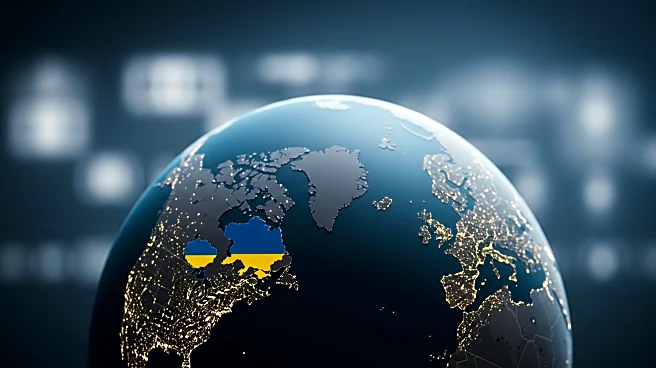What is the story about?
What's Happening?
Following the Alaska summit between President Trump and Russian President Vladimir Putin, European leaders are expressing relief that no immediate concessions were made regarding Ukraine. However, concerns remain as President Trump has indicated a belief that a peace treaty could be rapidly achieved if Ukraine agrees to cede more territory in the Donbas region. This stance places pressure on Ukrainian President Volodymyr Zelensky to negotiate, with Trump suggesting that European nations should also play a more active role in the peace process. The summit has highlighted the delicate balance of power and the ongoing diplomatic efforts to resolve the conflict.
Why It's Important?
The outcome of the Alaska summit is crucial for the future of Ukraine and the stability of Eastern Europe. President Trump's approach could potentially alter the dynamics of the conflict, with significant implications for Ukraine's sovereignty and territorial integrity. For European nations, the pressure to engage more actively in the peace process could lead to shifts in foreign policy and defense strategies. The summit also reflects the broader geopolitical tensions between the U.S., Russia, and Europe, with potential impacts on international alliances and security frameworks.
What's Next?
The focus will likely shift to diplomatic efforts to reach a consensus on the terms of a peace treaty. Ukraine faces the challenge of negotiating under pressure, while European leaders may need to reassess their roles in supporting Ukraine. The international community will be monitoring these developments closely, as the resolution of the conflict could influence future diplomatic engagements and regional stability. The U.S. may continue to play a pivotal role in facilitating discussions and ensuring a balanced outcome.















